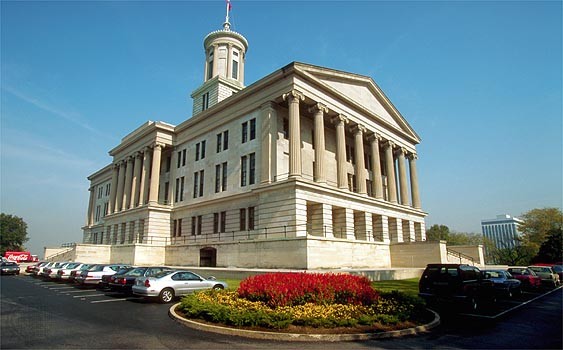If we learned anything over the last two years, it’s to keep an eye on Nashville’s influence over the future of public schools in Memphis and Shelby County. Here are three recent stories worth noting.
First up, charter schools for the middle class and well-to-do: An operator called Great Hearts Academies wants to open a charter school in West Nashville and potentially lure top students. Last week the state Board of Education directed the Metro Nashville Public School System to approve the application it had previously rejected. It’s a big win for charter school proponents, and even made The Wall Street Journal Monday.
Expansion of charter schools to the suburbs is the logical next step. The state board’s override of the local school board could give comfort to charter school proponents in Shelby County (and discomfort some commissioners). Until this year, only poor students or those in failing schools could attend charters, but a change in state law opened the way for any kid.
The Great Hearts pitch comes at a time of rapid charter school expansion in Nashville. As The Tennessean reported, “Five years ago Metro spent $4.1 million to educate 502 students in charter schools. For the upcoming school year, Metro has budgeted to spend $25.1 million for nearly 3,000 students.”
State Rep. Mike Stewart, D-Nashville, told The Tennessean he believed the state should respect the decision by the Nashville school board.
“I think it’s well known that at the time charter laws were being passed I raised serious concerns about provisions that allowed the state board to override local school boards,” Stewart said. “I continue to think the state board should not have the power to override the local board’s chartering decision, except in a case of fraud or some other similar problem. There’s clearly not that in the case.”
The second news story is about a federal court ruling on resegregation and the Equal Protection clause of the Constitution — the issues in one of the Shelby County Board of Commission’s filing earlier this month. Nashville parents Frances and Jeffrey Spurlock argued that black students in North Nashville were intentionally moved out of higher-performing schools to racially isolated, subpar ones in 2009.
Again, as reported by The Tennessean, U.S. District Judge Kevin Sharp wrote at the end of an 80-page opinion released Friday afternoon that the 2008 rezoning plan “does not classify students on the basis of race.”
“While the School Board’s action caused a segregative effect, the Court is unable to conclude that the School Board adopted the plan with a segregative purpose. The plan is rationally related to multiple legitimate government objectives. Therefore, it passes muster under federal constitutional principles of equal protection.”
The third story comes from the Tennessee Department of Education which on Monday recognized school districts across the state that significantly improved student performance and narrowed achievement gaps under Tennessee’s new accountability system. At an event in Sevier County, Education Commissioner Kevin Huffman announced the 21 districts that earned Exemplary designations for the 2011-12 school year. Memphis and Shelby County were not among them.
The upshot of all of this: Local decisions, it appears, can be trumped by federal courts, the Tennessee Department of Education and Board of Education, and the Tennessee General Assembly. Thursday’s election will tell us a lot about municipal school systems but may not be the last word.
